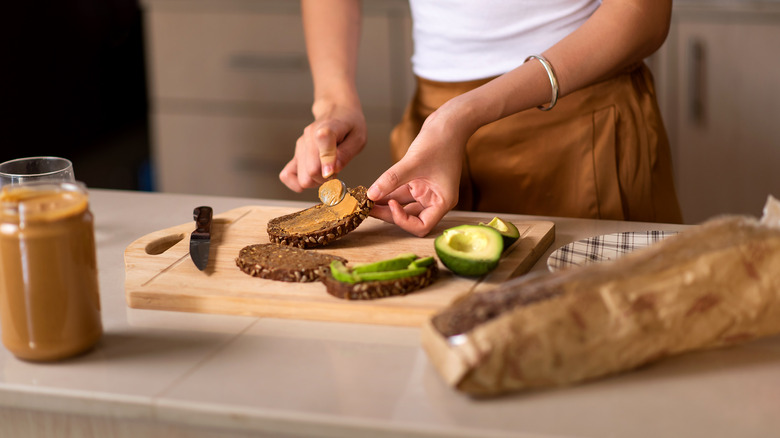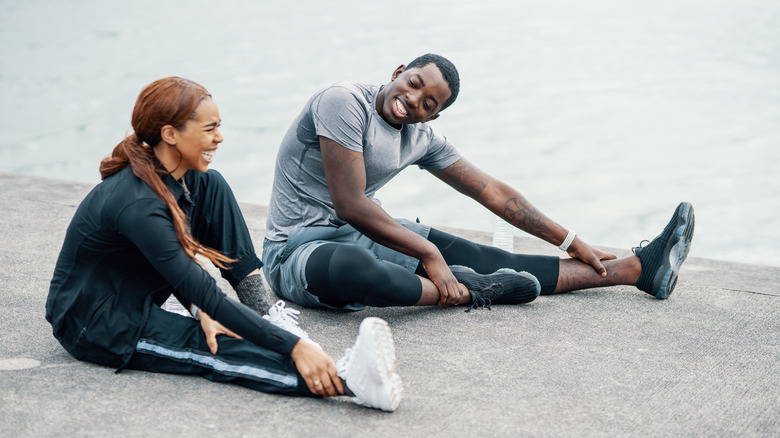When You Eat Peanut Butter Before A Workout, This Is What Happens To Your Body
Whether you're a morning or an evening exerciser, eating a small snack before a good workout can stave off hunger and give you a little fuel for your workout. What's most important is that the food you eat should help fuel your workout, so carbs are your best source. The shorter the amount of time before your workout, the more you'll need to rely on foods that digest quickly, such as simple carbs like fruit.
You could also include a little bit of protein if there's a little more time between eating and your workout. A little protein also helps if you have workouts lasting more than an hour, such as endurance workouts.
What macronutrient is missing here? Fat. Fat takes much longer to digest, so eating foods high in fat, like peanut butter, won't give you the energy you need for that HIIT workout. Sure, two tablespoons of reduced-sodium peanut butter have a few grams of carbs and protein, but 76% of the calories in peanut butter come from fat. Peanut butter might curb your hunger, but it could cause stomach issues as it sits undigested in your stomach during exercise.
Peanut butter is okay if mixed with other food sources
It's not that you have to give up peanut butter, even if you're used to eating a little before your workout. Peanut butter is good for you, providing vitamin E, folate, magnesium, zinc, and iron. Instead, it's best to pair it with a high-carb source like an apple or a banana. You'll get the necessary carbs for your workout plus 8 grams of protein. Peanut butter might be even better if you add some to chocolate protein powder for a post-workout peanut butter chocolate shake.
Even though peanut butter is high in fat, most of that fat comes from heart-healthy unsaturated fat. Just remember that having peanut butter will slow down the digestion of the important carbs and protein you'll need to fuel your body. The International Sports Sciences Association suggests refraining from peanut butter before or after your workout. Instead, save peanut butter for a late-afternoon snack or early-morning protein shake if you're in a rush to get to work.
What to eat before your workout
It's best not to eat a meal just before you exercise, especially since it can take four hours for complex carbs to be fully digested and stored as glycogen in your liver and muscles, according to a 2010 article in the Journal of the International Society of Sports Nutrition. If you don't want to work out on an empty stomach, small snacks 30 to 60 minutes before exercise are best. These snacks should aim for at least a 5 to 1 carb-to-protein ratio so that you won't lose energy at the end of your workout and begin to burn off muscle. Try a 6-ounce container of vanilla low-fat yogurt and a banana to fuel your next workout.
If you're working out for general fitness and health, aiming for 55% of your daily calories from carbohydrates, 15% from protein, and 30% from fat can provide enough energy for your daily activities and your workouts. Athletes who train longer than an hour a day, several days a week, might need more carbs during their workouts to sustain their energy. Bodybuilders might need to add more protein because their goal is to build lean muscle mass.



